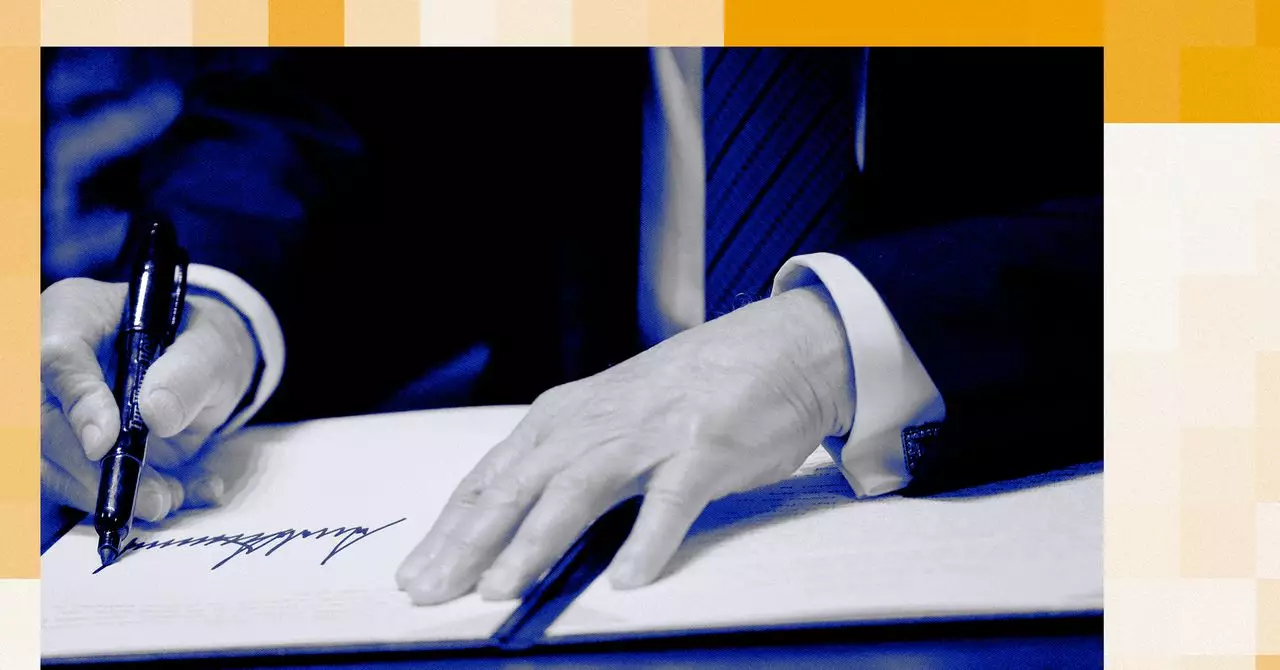On March 20, an executive order was issued, entitled “Stopping Waste, Fraud, and Abuse by Eliminating Information Silos.” While the order itself may seem unremarkable amidst a cacophony of governmental activity, it carries weighty implications for the management of unclassified data across federal agencies. Essentially, this order empowers the government to consolidate various databases. Though framed as a necessary step to combat inefficiencies, the decision raises significant concerns about data privacy and ethical governance.
At first glance, the intention behind breaking down information silos appears commendable. In business and governance alike, the term “silo” conjures images of inefficiency and fragmentation, where critical information is trapped in isolated units, preventing informed decision-making. The problem is prevalent; without shared knowledge, organizations can duplicate efforts and waste valuable resources. We’ve all seen the medieval disasters in corporate history caused by poor interdepartmental communication. This trend, if extended to governmental practices, could result in increased accountability and transparency. However, the pitfalls inherent in such sweeping changes cannot be ignored.
One Step Towards Efficiency or a Leap into Surveillance?
The promise of more cohesive data sharing is tantalizing, particularly for agencies tasked with identifying and rooting out fraud and waste. For example, the prospect of unearthing discrepancies in property valuations—where misrepresentations can lead to extensive financial fraud—could benefit tremendously from integrated information. Yet, the capabilities afforded by this executive order have far-reaching implications, especially regarding individual privacy.
Imagine the potential for misuse as various federal entities gain unprecedented access to sensitive information. What happens when an individual’s medical records, tax returns, or other personal data become aggregated in one repository? Addressing this concern, John Davisson from the Electronic Privacy Information Center highlights a vital principle: data collection should adhere strictly to identifiable and lawful purposes. When merging data across agencies, this principle faces a significant threat of violation, ultimately resulting in a breach of trust between the government and citizens.
The Double-Edged Sword of Information Sharing
Moreover, the concept of consolidating data oversight faces serious scrutiny in light of public concerns about “Big Brother” surveillance. The philosophy of siloing information stems not just from efficiency but as a means of protecting citizens. Sensitive data—like medical histories or immigration status—needs robust safeguards to ensure privacy. If the government holds the authority to access and amalgamate all this data, unintended consequences could emerge, shifting the balance of power towards an invasive form of governance.
Let’s consider practical ramifications here. The Internal Revenue Service (IRS) has a peculiar policy concerning tax revenues generated by those operating in the shadows, such as undocumented immigrants. They contribute significantly to national revenue, yet their details are kept separate from other government databases. Removing these barriers could make the IRS’s role much less viable and risk alienating a community already marginalized. Could breaking these silos lead to greater scrutiny and reduced tax compliance among those who fear sacrifice of confidentiality?
Public Trust and Participation
Furthermore, the census offers another layer of complexity when assessing the efficacy of data collaboration. By law, census information is protected to encourage wide participation. Individuals hesitant about data sharing often opt against revealing their information, fearing repercussions. If the government were to close these silos by mandating data sharing, public trust could erode, disrupting essential initiatives aimed at understanding demographic needs and designing social programs.
In pursuit of eliminating fraud and waste, striking the right balance is essential—not only in terms of efficiency but also in maintaining respect for individual rights and privacy. While the potential benefits of breaking down silos are clear, they do not warrant abandonment of ethical considerations or citizen trust.
This executive order represents a pivotal moment for data governance, encapsulating the ongoing struggle between enhancing efficiency and safeguarding individual privacy. Any move towards expanded data access should be met with robust debate and, most importantly, stringent checks and balances to act in favor of both the public good and personal freedoms.

